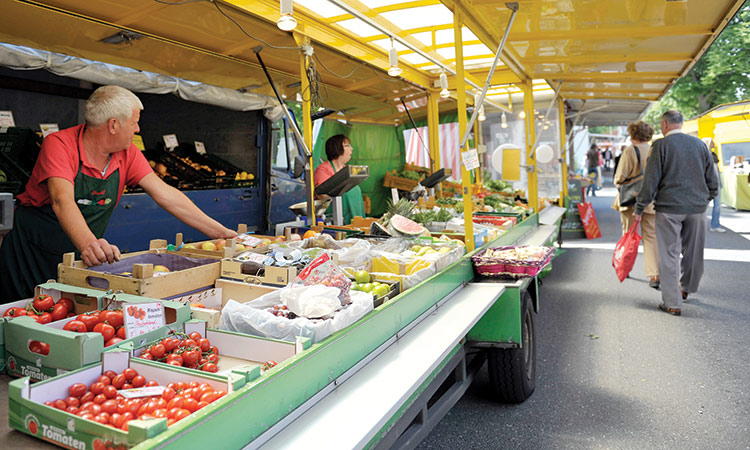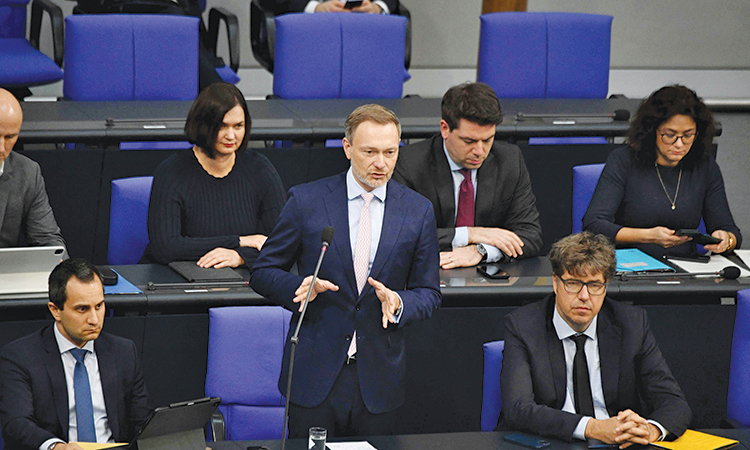German economic advisers slash GDP outlook, see recession risk

Shoppers on the main street in Cologne, Germany.
The advisers, whose forecasts guide the German government in setting fiscal policy, cut their 2022 economic growth forecast to 1.8 per cent from 4.6 per cent, adding output would not reach its pre-pandemic level before the third quarter of the year.
In 2023, Germany’s gross domestic product should grow by 3.6 per cent, the four advisers said.
“We haven’t tried to calculate the exact probability of a recession,” council member Volker Wieland told a news conference.
“For example, we don’t know if there will be a supply freeze or whether the West can no longer avoid imposing an energy embargo. But these are possibilities. So, the risk is substantial,” Wieland said.
He added that unlike the US economy, Germany still had not fully recovered from the coronavirus pandemic.
The advisers said Germany was on track for further economic recovery before Russia invaded its neighbour on Feb.24.
“The Russian war of aggression against Ukraine has now drastically worsened economic conditions,” they said in a statement.
The war further frayed supply chains that had already been strained due to the COVID-19 pandemic, and a surge in natural gas and crude oil prices hurt companies and private consumption, they said.
The council forecast inflation to reach 6.1 per cent in 2022 before easing to 3.4 per cent next year.
A potential escalation of the conflict and additional sanctions could have a significantly greater impact on the German and European economies, the experts warned.
“We have to change course and use all levers to become less dependent on Russian raw material supplies,” Wieland told Reuters, adding he favoured extending the life of German nuclear power plants.
The country’s three remaining nuclear power plants are scheduled to be shut down by the end of the year, and the government has so far vehemently opposed extending their life-span as a way of reducing its reliance on Russian gas.
Meanwhile the Eurozone bond yields rose on Wednesday, keeping multi-year highs in sight as inflation data from Germany and Spain kept alive expectations that the European Central Bank may have to hike rates sooner rather than later to curb price pressures.
A day after rising above 0 per cent for the first time since 2014, Germany’s two-year bond yield was up six basis points at 0.01% -- keeping the previous day’s highs in sight.
Across the single currency bloc, benchmark 10-year bond yields too were 5-6 bps higher on the day, as inflation numbers raised rate-hike prospects.
Spanish consumer prices rose 9.8 per cent year-on-year in March, their fastest pace since May 1985, while regional data from five states suggested German inflation is likely running above 7 per cent in March.
“We have huge numbers for inflation from Spain and parts of Germany, which is not something people would have forecast two or three months ago,” said Ludovic Colin, a senior portfolio manager at Swiss asset manager Vontobel.
“It’s hard to forecast things in the short-term and that’s why we have a panic in yields and it’s hard to say where yields are going and when they will stop.”
Bond markets across major economies have had their worst sell off in years. Two-year German bond yields are up 53 bps in March and set for this biggest monthly jump since 2008.
And while ECB chief Christine Lagarde on Wednesday said food and energy prices in the bloc should stop rising, others pushed the case for higher rates.







